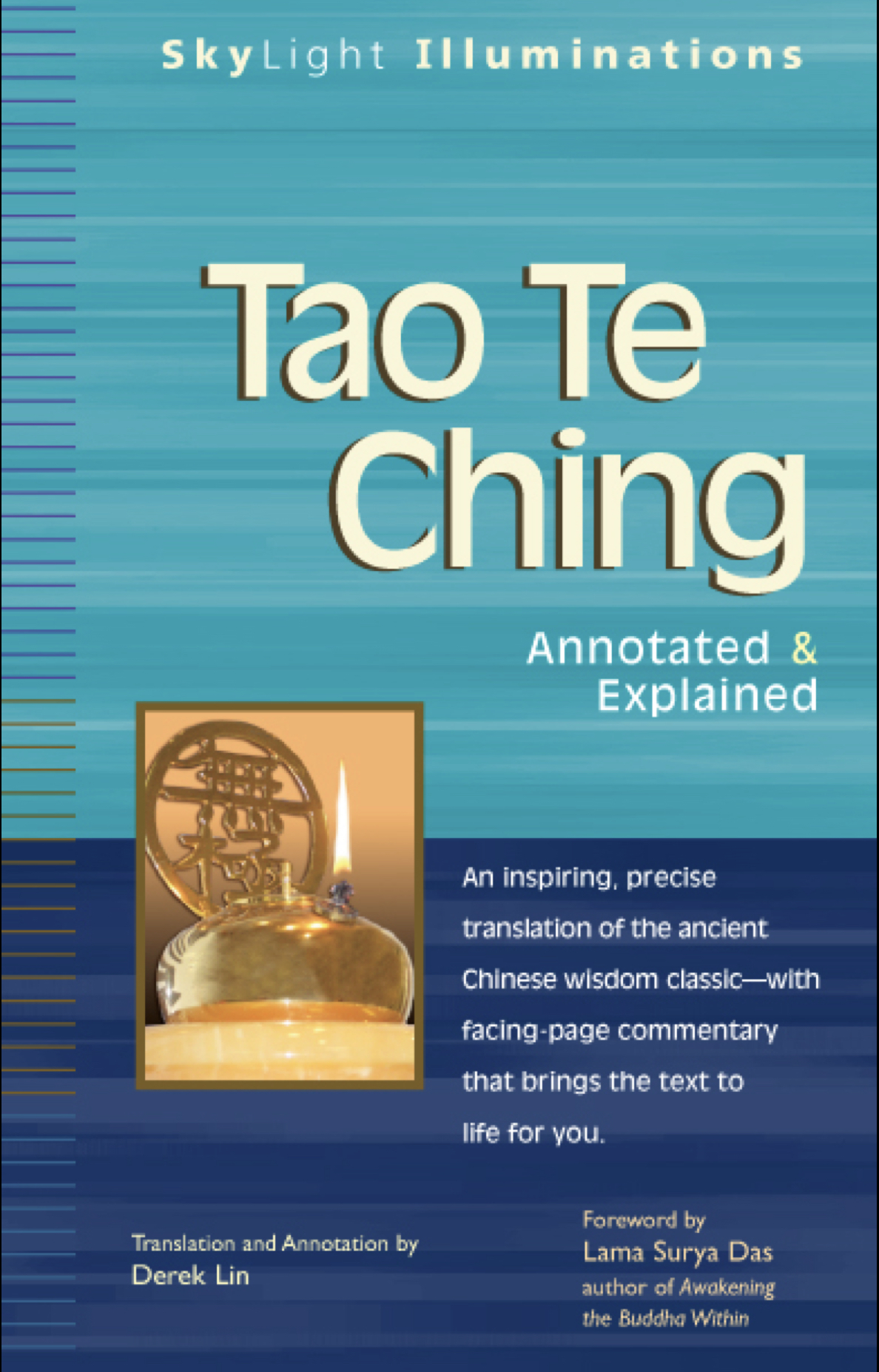Tao Te Ching Annotated and Explained
Author: Lao Tzu, Derek Lin Publisher: Woodstock, VT: Skylight Illuminations. Publish Date: 2006 Status:📚
Annotations
163
“Unattached action” is my translation for wu wei, the state where we act without attachments to specific outcomes.
157
2 Water seeps into and dissolves rocks; electricity flows through a block of metal. Thus, the intangible Tao can permeate all things, even if they appear to be solid, without any cracks or openings.
158
3 We can extrapolate from this to understand life. The Tao acts in a wu wei (unattached action) manner and effortlessly achieves the miracle of life. We find inspiration in this and see the possibility to act without attachments and achieve great works without friction or resistance.
76
The softest things of the world
Override the hardest things of the world1
That which has no substance
Enters into that which has no openings2
From this I know the benefits of unattached actions3
The teaching without words4
The benefits of actions without attachment
Are rarely matched in the world5
163
4 The principle of wu wei is very powerful. By focusing on the process instead of the end result, we allow all things to progress naturally and minimize our tendency to meddle. The net effect is that the difficult becomes easy, and we struggle less but accomplish more.
163
5 “Take the world” in these two lines means achieving one’s goals in the world. Those who do not understand wu wei may expend excessive resources, time, and energy toward achieving their goals, but end up with poor results. This is because they insist on asserting their manipulative influence, which makes everything more complex and therefore difficult to manage. They are so eager to achieve that they trip over themselves.
81
Pursue knowledge, daily gain1
Pursue Tao, daily loss2
Loss and more loss
Until one reaches unattached action3
With unattached action, there is nothing one cannot do4
Take the world by constantly applying noninterference
The one who interferes is not qualified to take the world
99
Rivers and oceans can be the kings of a hundred valleys
Because of their goodness in staying low
So they can be the kings of a hundred valleys1
Thus if sages wish to be over people
They must speak humbly to them
If they wish to be in front of people
They must place themselves behind them2
Thus the sages are positioned above
But the people do not feel burdened
They are positioned in front
But the people do not feel harmed
Thus the world is glad to push them forward without resentment3
Because they do not contend
So the world cannot contend with them4
181
1 Rivers and oceans receive everything from the streams and rivulets of a hundred valleys. It is as if they are the rulers, and the valleys are the loyal subjects who pay tributes into the royal treasury. The reason for this is simple: rivers and oceans occupy the lower positions, so all the streams and rivulets naturally flow into them.
181
2 The principle applies equally well to human interactions. If we wish to win friends and influence people, we must also occupy the lower positions, just as rivers and oceans do. This means being truly humble.
True humility compels us to place ourselves behind others out of the wish to be of service. This is actually the essence of true leadership, which is not about ordering people around, but about serving the greater good.
181
3 As leaders, sages utilize the Tao rather than force or domination. People assist them voluntarily, without coercion or pressure. Although the position of a sage appears to be above the followers, people do not feel burdened or oppressed.
We can follow the same principles in building relationships and promoting harmony, so that people naturally align with us and do not resent our authority. In fact, they may even push us to accept the mantle of power, knowing that we can be trusted with the responsibility.
181
4 This is a very different concept from the conventional “might makes right” paradigm, where one seizes power by force and bullies others with it. The sages are the exact opposite. By following their example, we, too, will receive abundantly and enjoy the support of people, who follow the leadership of the Tao from the heart, willingly and gladly.
